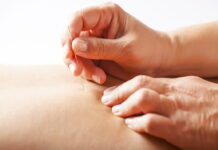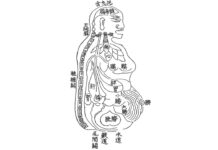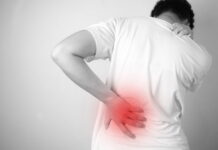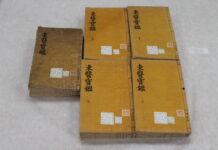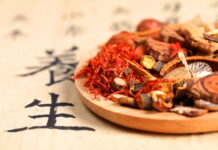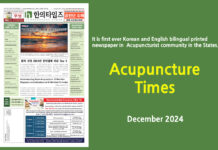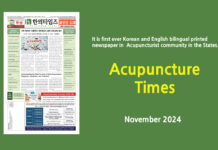Written By Jun Heo(許浚, 1539~1615), Translated by Namil Kim, Wung Seok Cha et al., Published by Ministry of Health & Welfare (Korea)
01 The Shape of the Heart 心形象심의 형상
- The shape of the heart resembles an unblossomed lotus with 9 holes in the middle. It is the house of the spirit and pulls in essential qi of the universe.
- The weight of the heart is about 12 nyang. There are 7 holes and 3 hairs in the middle. It contains 3 hop of essence juice. It mainly stores the spirit.
- People with great wisdom have 7 holes and 3 hairs in their hearts. People with wisdom have 5 holes and 2 hairs in their hearts. People with little wisdom have 3 holes and 1 hair in their hearts. Ordinary people have 2 holes and no hair in their hearts. Foolish people have 1 hole, and most foolish people have either 1 small hole or no hole, meaning that there is no room for the spirit to enter.
- The heart has 7 holes and 3 hairs. The 7 holes correspond to the Big Dipper and the 3 hairs correspond to the three stars (三台星) (Three stars under the Big Dipper). Therefore, if the mind is true, nature will correspond to it.
- The pericardium is the membrane that covers the heart. It covers the outer part of the heart, thus its name, pericardium.
- The shape of the heart resembles a lotus before blossom. The upper part is large and bottom part is pointed. It is attached to the lungs.
02 Areas of the Heart 心部位 심의 부위
- The heart is located underneath the lungs and above the liver.
- The five visceral system and the heart are interconnected. Therefore, if a disease is in the five viscera, it first invades the heart. The upper part of the heart is connected up to the lungs. Branches of the heart are connected up to the lungs, and other branches connect to the kidneys via the vertebra. From the kidneys, it connects to the bladder and then is excreted to the urethra with the collateral of the bladder membrane. This is the lowest part of the heart.
- CV14 is the alarm point of the heart. On the back is BL-15, the transport point of the heart, located underneath the 5th vertebra. These are the locations of the heart.
03 Day and Time Which the Heart Governs 心主時日심이 주관하는 시간과 날짜
- The heart governs summer, hand lesser yin, hand greater yang, and Byeong and Jeong day (丙丁日).
- South engenders heat, heat engenders Fire, Fire engenders a bitter taste, and bitter taste engenders the heart.
- The heart is the origin of life and the place where the spirit transforms. It is the greater yang of yang and corresponds to summer qi.
04 Things Belonging to the Heart 心屬物類 심에 속하는 것들
It is heat in heaven and Fire in earth. It is the Li trigram (离卦) from the Book of Changes and pulses in the body. It is the heart in the five viscera and red in the five colors. It is the Chi sound (徵) in the five sounds and the laughing sound in the five voices. It is anxiety in the five changes and the tongue in the five orifices. It is the bitter taste in the five tastes and joy in the five minds. Its humor is sweat and its state is manifested by color. Its smell is the burning smell and its number is seven. Its grain is barley (or millet) and its animal is sheep (or horse). Its animal category is feathered animals and its fruit is apricot. Its vegetable is rakkyo. Its meridian is hand lesser yin.
05 Size of the Heart 心臟大小 심장의 대소
- The heart is the governor of the five viscera and six bowels. Supraclavicular fossa is the road for the heart. It is possible to predict the size of the clavicle by observing the xiphoid process.
- The person with skin that is red in color and dense in interstices has a small heart. The person with rough interstices has a large heart. The person without a xiphoid process has a heart in a higher place than other people. The person with the small, short, and lifted xiphoid process has a heart in a lower place than other people. The person with a long xiphoid process has a stable heart. The person with a straight, unlifted xiphoid process has a stable heart. The person with a slanted xiphoid process has a heart in a slanted position.
- If the heart is small, it is susceptible to anxiety, and if the heart is large, it is hardly affected by anxiety. If the heart is located in a high position, the person will feel chest discomfort, suffer from forgetfulness, and have difficulty in beginning a conversation. If the heart is located in the lower position, it is susceptible to cold, and the person will easily get afraid even by just speaking. If the heart is stable, it will protect firmly and if the heart is weak, the person will frequently suffer from wasting thirst and middle emaciation. If the heart is positioned correctly, it will be harmonized and will not get hurt. If the heart is in the slanted position, the person will have difficulty in working consistently and for an extended period and thus have difficulty in completing work or projects.
06 Symptoms of Heart Damage 心傷證 심상증
- Anxiety, concern, and too many thoughts damage the heart.
- When the pathogen invades, the ethereal and corporeal souls become nervous because blood and qi are scanty. Scanty blood and qi belong to heart disease. When heart qi is deficient, the patient will be fearful and tend to fall asleep with eyes closed. The patient will dream of moving a long distance, resulting in scattered essence-spirit and frenetic movement of the ethereal and corporeal souls. When yin qi is deficient, it will become epilepsy, and when yang qi is deficient, manic psychosis will result.
- When the person with the damaged heart gets tired, the head and face will redden with the heavy lower body, and there will be chest discomfort, a fever, and stirring qi movement in the area above the umbilicus. The patient’s pulse
will be string-like. This is because the heart is damaged.
07 Symptoms of Heart Disease 心病證 심병증
- When the pathogen is in the heart, the pit of the stomach will be painful and the person will frequently feel sad and faint due to dizziness.
- When a kidney disease is transported to the heart and causes tightening of tendons and pulses, it is called muscular spasms.
- The heart heat causes a red facial complexion with the overflowing of blood over to the collateral.
- External signs of heart disease are the reddened face, dried mouth, and a tendency to smile. The internal sign is
stirring qi felt above the umbilicus, which is hard with pain on pressing. The patient with heart disease will have chest discomfort, heart pain, hot palm, and nausea. These symptoms indicate heart disease. - When the bones and muscles of the thigh gets skinny with chest fullness, dyspnea, chest pain, and pulling pain from shoulder to the nape, the patient will die in a month. When the death pulse appears, it means that the patient will
die soon. Annotation says, “This refers to the heart. The patient will die within 30 days.” - A person being forgetful with palpitations, anxiety, chest discomfort, and sadness all result from deficient heart-blood.












